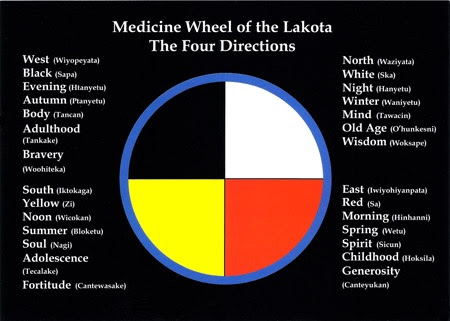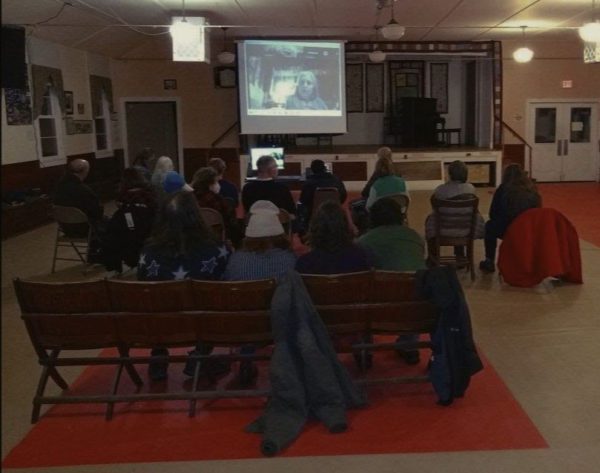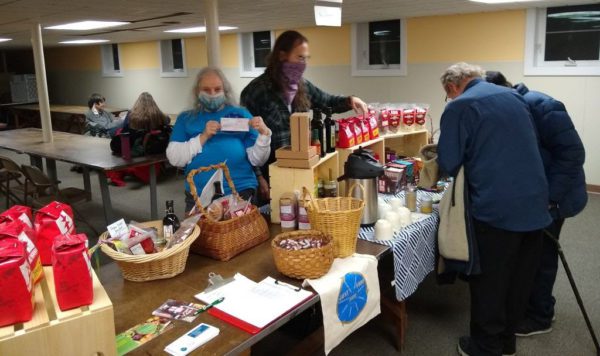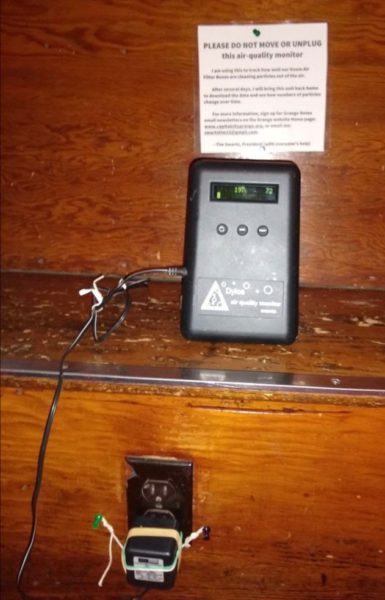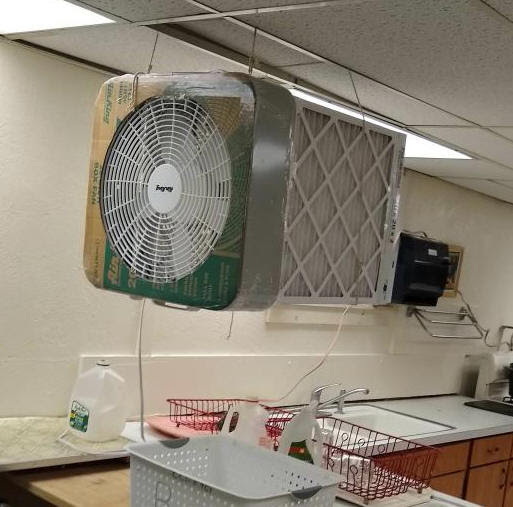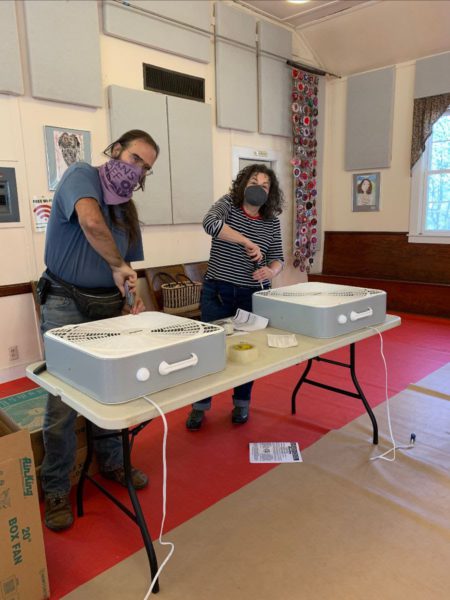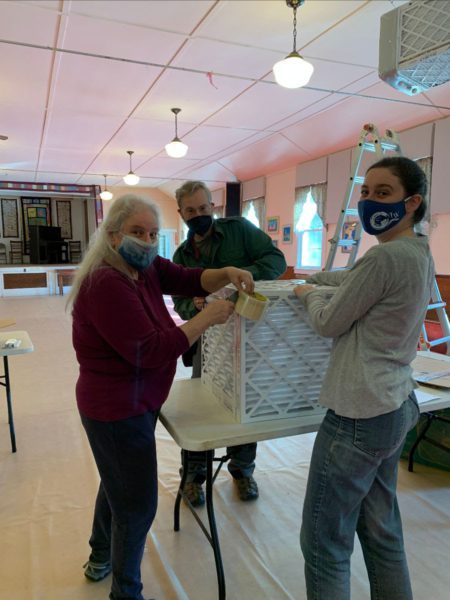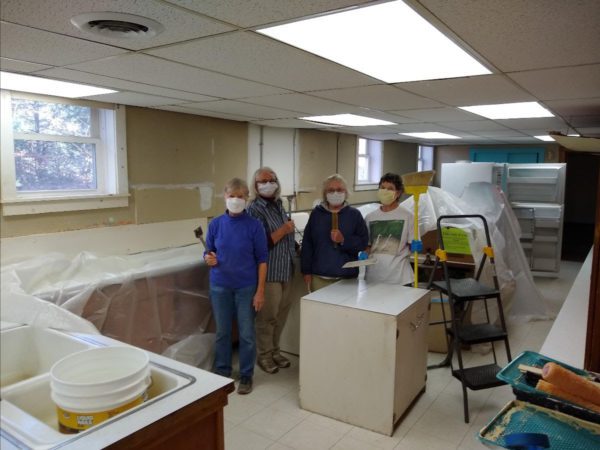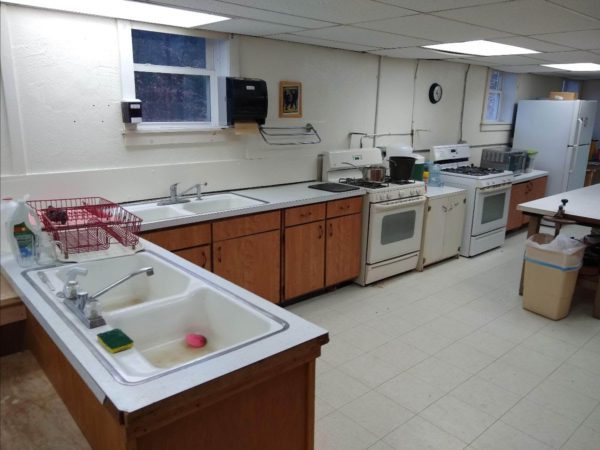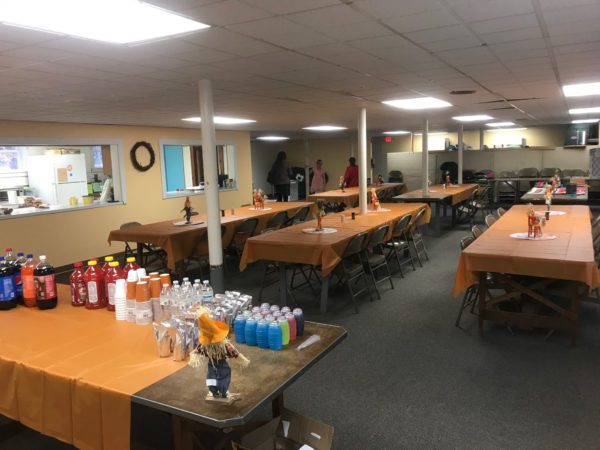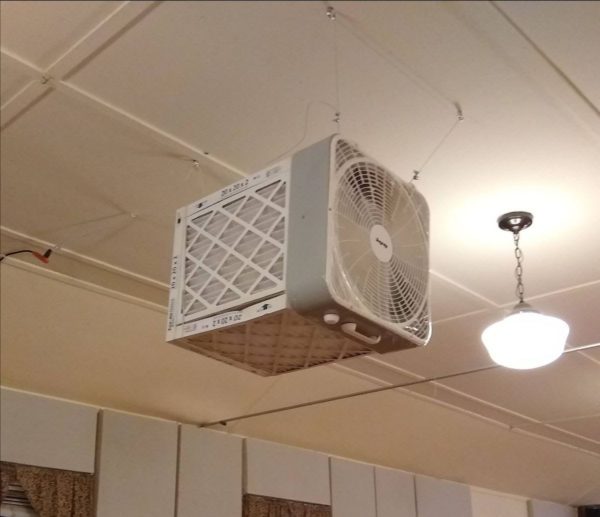Grange Notes by Tim Swartz, Grange President (with everyone’s help) January 12, 2022
In this cold new year, with another major COVID spike, we’ll meet virtually to plan ahead.
We all hoped that putting 2021 behind might mean that we could look forward to social gatherings in person, rather than on line. As we all know, that is not looking so promising right now. The huge increase in positive COVID tests in Vermont mirrors the national trends, which in turn are similar to other countries’ experience with the more-transmissible Omicron variant. Initial research seems to show that infections with the Omicron strain of the virus are milder, especially for those with complete vaccinations including boosters. We all hope that will pan out in the longer term–but the short term impacts are very concerning, especially on the capacity of our health care system.
Because of these factors, our Grange meeting will be help solely on Zoom, to avoid gathering people in one place. Here’s the Zoom info:
Join Zoom Meeting
https://us02web.zoom.us/j/82553846739?pwd=ak83MGJ5aUE0VzZnZUpTTTRCcHZmZz09
Meeting ID: 825 5384 6739
Passcode: 677053
Or: dial in on your phone for audio:
646 876 9923 US (New York)
Meeting ID: 825 5384 6739
Passcode: 677053
As always, this Zoom info is posted on the Grange website Calendar listing for this meeting, which will be from 4:30 to 6:00 PM on Saturday, January 15th.
I’m sure you won’t be surprised that we won’t have a potluck dinner this month. As usual, I will also remind you that the Grange (from National to State to Capital City Grange) supports and encourages vaccination for all people who are eligible–let’s all keep working together to get past the domination of COVID.
So what will we be talking about?
#1:
The most important topic will be planning to campaign for the renewal of full property tax exemption for the Grange. As you likely remember, in 2021 our attempt to extend the full tax exemption which the Berlin Town Meeting granted in 2016 was restricted to only being able to ask for a one-year exemption, and only exemption from “Municipal” property taxes. Town Meeting in 2021 was canceled as an in-person event, replaced by Australian ballot voting–and we got very good support, with about 80% of the votes supporting our (partial) exemption.
We appreciate the support from the voters of Berlin–and we also appreciate that when we asked for abatement of the remainder of the tax burden later in the year, the Board of Abatement granted relief from 3/4 of the tax, especially recognizing the difficult straits we were under given the pandemic’s impact on rentals.
This year, we have submitted petitions with enough signatures to make sure that our official request for full exemption is on the ballot. What we don’t know yet is how and when the Town Meeting will take place. If it is in-person, either on the standard date of March 1st, or delayed until later in the spring, I will be there, and will be happy to plead our cause, and to see how the floor vote comes out.
If the ballot measures are put on the Australian Ballot, rather than voted on in person, we will have no opportunity to directly address the voters. I have submitted a “Grange Report” for the Berlin Town Report, which describes our mission, our contributions to the Berlin Town and wider community, and the “free rentals” we have been able to continue to provide for Berlin Town residents and Berlin non-profit organizations.
Whichever way the ballot item is decided, we will need to influence Berlin voters–and we will need the help of everybody who can pitch in. We’ll be discussing how this can be done at our meeting this Saturday, hope you will join us with your ideas!
#2:
We’ll also be talking about the current status of rentals at the Hall, as some groups are choosing to restrict gatherings due to the Omicron surge–as we have chosen to do for this meeting.
I’ll report on the contractors with whom I’ve been meeting, to get quotes for a permanent ventilation system. The quick summary is that it is not cheap. The Friends of the Capital City Grange is considering if this is the best way to use the limited funds we have available–there is much to consider.
#3:
I hope that we will also be able to start thinking about Resolutions to submit to the VT State Grange session. We will do a better job composing them if we can start early, rather than ending up at the last minute trying to write something! In past years, our Grange has submitted resolutions about supporting single-payer health care, supporting immigrant dairy farm workers, and supporting “card check”–accepting workers’ signatures to establish union representation in a workplace. Other Granges have proposed resolutions on an even wider range of topics–from changes in Grange rituals, to reductions in use of neonicitinoid pesticides, to changes in particular intersections….the sky is the limit!
One of the purposes of the Grange is to improve the world we live in–and learning to craft appropriate resolutions that can gain support and become part of Grange policy is one way that we get practice in practical politics.
So–bring your ideas, and we’ll start working on them!
#4:
We’ll also get a report on the progress of the FCCGH end-of-year appeal. This annual fund-raising campaign has gotten a great response, adding to funds that can be used for projects–and especially for use as matching funds for grants to fund major improvements in the Grange Hall. I bet you know that these have included the new bathrooms, the basement fire exit, and the major renovation of the lower level completed in 2020. There are many more upgrades we would like to pursue. The response to the Friends’ appeal shows the generosity of Grange members, Grange Hall users and many who have fond memories of community gatherings at the Hall. It certainly renews our desire to keep this community Hall a vibrant and active place which is accessible and affordable for all.
Even though 2021 is over, we still welcome contributions. You can donate anytime by using the PayPal link on the Grange website: https://capitalcitygrange.org/
